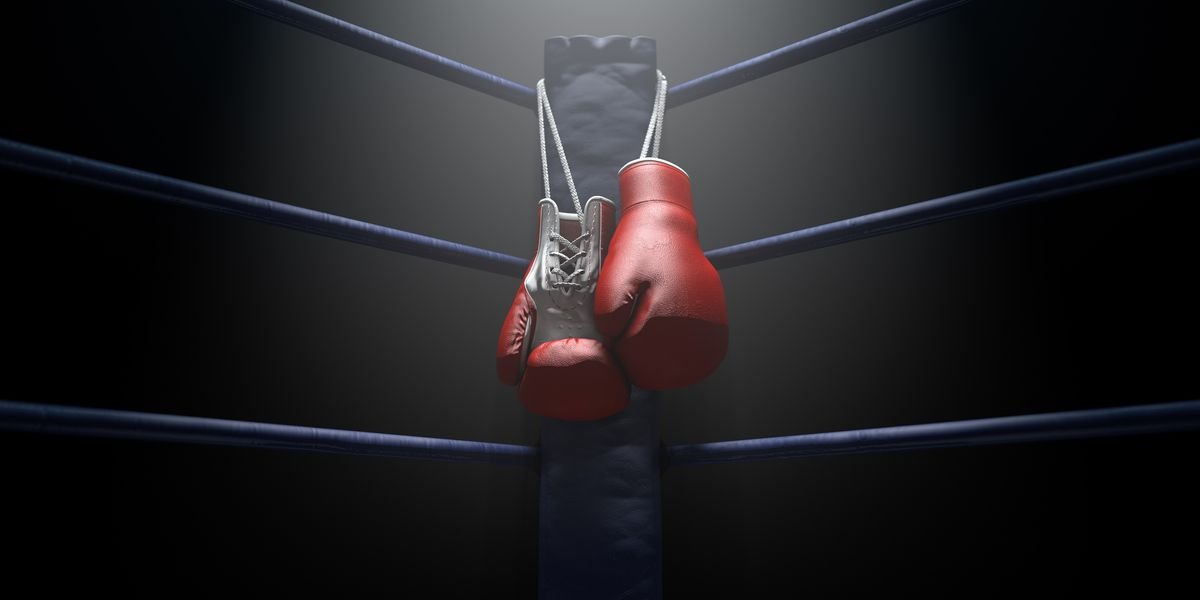Tools & Platforms
The Top 10 Boxers of All Time According to AI

By Richard D. Harroch and Dominique A. Harroch
Boxing is more than just a sport—it’s a theater of discipline, resilience, and raw power. The stories of boxing’s greatest champions are woven with tales of triumph over adversity, breathtaking victories, and an unmatched hunger for glory. These athletes step into the ring not only to battle their opponents but also to confront their own limits, pushing the boundaries of what the human spirit can endure.
Over the decades, boxing has produced some of the most celebrated athletes in history. Each generation has seen fighters who redefined the sport, brought crowds to their feet, and etched their names into the annals of greatness. These boxers weren’t just skilled pugilists; they were cultural icons who inspired millions with their courage and determination.
In this article, we count down the top 10 boxers of all time, with research assistance from ChatGPT. These fighters earned their places on this list through a combination of skill, legacy, and impact both inside and outside the ring.
1. Muhammad Ali
Muhammad Ali was a larger-than-life figure who transcended the sport of boxing. With his unmatched charisma, lightning-fast reflexes, and a fighting style as poetic as his words, Ali dominated the heavyweight division and became a global icon for his activism and larger-than-life personality.
- Nickname: The Greatest
- Weight Class: Heavyweight
- Record: 56 wins (37 KOs), 5 losses
- Notable Fights: “The Rumble in the Jungle” against George Foreman, “The Thrilla in Manila” against Joe Frazier
- Legacy Outside the Ring: Advocate for civil rights and a symbol of resistance against oppression
- Awards: Three-time heavyweight champion and Olympic gold medalist (1960)
2. Sugar Ray Robinson
Many regard Sugar Ray Robinson as the greatest pound-for-pound boxer in history. Known for his impeccable technique, speed, and power, Robinson dominated the welterweight and middleweight divisions with ease.
- Nickname: Sugar
- Weight Class: Welterweight, middleweight
- Record: 173 wins (108 KOs), 19 losses, 6 draws
- Notable Fights: Epic rivalry with Jake LaMotta, known as the “St. Valentine’s Day Massacre”
- Style: Fluid footwork and deadly counterpunching
- Legacy: The benchmark for boxing greatness; inspired the creation of the pound-for-pound ranking
- Impact: Revolutionized the way fighters approached the sport with his finesse
3. Mike Tyson
Mike Tyson was a force of nature in the 1980s, earning the nickname “Iron Mike” for his devastating power and relentless aggression. He became the youngest heavyweight champion in history at just 20 years old.
- Nickname: Iron Mike
- Weight Class: Heavyweight
- Record: 50 wins (44 KOs), 6 losses
- Notable Fights: Dominant first-round KO of Michael Spinks in 91 seconds
- Fighting Style: Aggressive, with an explosive combination of speed and power
- Legacy: Known for his intimidating persona and spectacular knockouts
- Impact: Brought global attention to the heavyweight division during his reign
4. Floyd Mayweather Jr.
Floyd Mayweather Jr. is synonymous with defensive brilliance and technical mastery. Undefeated throughout his career, Mayweather built his success on his ability to outthink and outmaneuver every opponent.
- Nickname: Money, Pretty Boy
- Weight Class: Welterweight, Super featherweight, lightweight
- Record: 50 wins (27 KOs), 0 losses
- Notable Fights: Defeated Manny Pacquiao in one of the highest-grossing fights in history
- Fighting Style: Exceptional defense, counterpunching, and ring IQ
- Legacy: Considered the best defensive boxer in history
- Impact: Revolutionized boxing as a business with his promotional savvy
5. Joe Louis
Joe Louis was a dominant heavyweight who held the title for a record 12 years. His technical skills, combined with his knockout power, made him one of the most feared fighters of his era.
- Nickname: Brown Bomber
- Weight Class: Heavyweight
- Record: 66 wins (52 KOs), 3 losses
- Notable Fights: Victory over Max Schmeling in their rematch, symbolizing democracy versus fascism
- Legacy: A unifying figure during World War II and a symbol of hope for African Americans
- Awards: Longest reign as heavyweight champion in history
- Impact: Elevated boxing’s popularity worldwide
6. Manny Pacquiao
Manny Pacquiao is the only boxer in history to win world titles in eight different weight classes. Known for his relentless work ethic and humility, Pacquiao combined power, speed, and charisma to become a global sports icon.
- Nickname: Pac-Man
- Weight Class: Flyweight to welterweight
- Record: 62 wins (39 KOs), 8 losses, 2 draws
- Notable Fights: Trilogy against Juan Manuel Márquez, victory over Oscar De La Hoya
- Style: Aggressive and fast-paced, with relentless combinations
- Legacy: Transcended boxing to become a political leader in the Philippines
- Impact: Inspired millions with his rise from poverty to global fame
7. George Foreman
George Foreman is best known for his devastating power and two careers as a world-class boxer. After an early retirement, Foreman made a stunning comeback, reclaiming the heavyweight title at 45 years old.
- Nickname: Big George
- Weight Class: Heavyweight
- Record: 76 wins (68 KOs), 5 losses
- Notable Fights: Victory over Michael Moorer at age 45 to regain the heavyweight title
- Legacy: Represented perseverance and longevity in sports
- Impact: Successfully transitioned into entrepreneurship with the George Foreman Grill
8. Roberto Durán
Roberto Durán is one of the most ferocious fighters in boxing history. He dominated the lightweight division before becoming a world champion in four weight classes.
- Nickname: Hands of Stone
- Weight Class: Lightweight to middleweight
- Record: 103 wins (70 KOs), 16 losses
- Notable Fights: Victory over Sugar Ray Leonard in the “Brawl in Montreal”
- Style: Aggressive, relentless pressure with powerful punches
- Legacy: One of the most skilled and versatile fighters of all time
- Impact: Revered in his native Panama as a national hero
9. Rocky Marciano
Rocky Marciano remains the only heavyweight champion in history to retire undefeated. Known for his relentless pressure and incredible durability, Marciano’s 49-0 record remains legendary.
- Nickname: The Brockton Blockbuster
- Weight Class: Heavyweight
- Record: 49 wins (43 KOs), 0 losses
- Notable Fights: Knockout victory over Joe Louis in Louis’ final fight
- Legacy: Embodied the spirit of determination and grit
- Impact: Inspired the fictional Rocky Balboa character
- Awards: Inducted into the Boxing Hall of Fame
Evander Holyfield was a master technician and one of the best pound-for-pound fighters in history. His epic battles with Mike Tyson and Riddick Bowe defined an era.
- Nickname: The Real Deal
- Weight Class: Cruiserweight, heavyweight
- Record: 44 wins (29 KOs), 10 losses, 2 draws
- Notable Fights: Trilogy against Riddick Bowe, upset victory over Mike Tyson
- Style: Exceptional stamina and ring intelligence
- Legacy: The only four-time heavyweight champion in history
- Impact: Cemented his reputation as one of boxing’s toughest competitors
Conclusion on Boxing Legends
Boxing’s greatest champions are more than just athletes—they’re symbols of perseverance, grit, and the relentless pursuit of greatness. Each of these boxers left an indelible mark on the sport, captivating audiences with their skill, bravery, and unforgettable moments in the ring.
Whether it’s Muhammad Ali’s charisma, Mike Tyson’s ferocity, or Floyd Mayweather’s technical mastery, these fighters represent the pinnacle of boxing excellence. Their legacies extend beyond the ropes, inspiring generations and cementing their places in history as legends of the sport.
Related Articles:
About the Authors
Richard D. Harroch is a Senior Advisor to CEOs, management teams, and Boards of Directors. He is an expert on M&A, venture capital, startups, and business contracts. He was the Managing Director and Global Head of M&A at VantagePoint Capital Partners, a venture capital fund in the San Francisco area. His focus is on internet, digital media, AI and technology companies. He was the founder of several Internet companies. His articles have appeared online in Forbes, Fortune, MSN, Yahoo, Fox Business and AllBusiness.com. Richard is the author of several books on startups and entrepreneurship as well as the co-author of Poker for Dummies and a Wall Street Journal-bestselling book on small business. He is the co-author of a 1,500-page book published by Bloomberg on mergers and acquisitions of privately held companies. He was also a corporate and M&A partner at the international law firm of Orrick, Herrington & Sutcliffe. He has been involved in over 200 M&A transactions and 250 startup financings. He can be reached through LinkedIn.
Dominique Harroch is the Chief of Staff at AllBusiness.com. She has acted as a Chief of Staff or Operations Leader for multiple companies where she leveraged her extensive experience in operations management, strategic planning, and team leadership to drive organizational success. With a background that spans over two decades in operations leadership, event planning at her own start-up and marketing at various financial and retail companies, Dominique is known for her ability to optimize processes, manage complex projects and lead high-performing teams. She holds a BA in English and Psychology from U.C. Berkeley and an MBA from the University of San Francisco. She can be reached via LinkedIn.
Copyright (c) by Richard D. Harroch. All Rights Reserved.
Tools & Platforms
Duke University pilot project examining pros and cons of using artificial intelligence in college

DURHAM, N.C. — As generative artificial intelligence tools like ChatGPT have become increasingly prevalent in academic settings, faculty and students have been forced to adapt.
The debut of OpenAI’s ChatGPT in 2022 spread uncertainty across the higher education landscape. Many educators scrambled to create new guidelines to prevent academic dishonesty from becoming the norm in academia, while some emphasized the strengths of AI as a learning aid.
As part of a new pilot with OpenAI, all Duke undergraduate students, as well as staff, faculty, and students across the University’s professional schools, gained free, unlimited access to ChatGPT-4o beginning June 2. The University also announced DukeGPT, a University-managed AI interface that connects users to resources for learning and research and ensures “maximum privacy and robust data protection.”
Duke launched a new Provost’s Initiative to examine the opportunities and challenges AI brings to student life on May 23. The initiative will foster campus discourse on the use of AI tools and present recommendations in a report by the end of the fall 2025 semester.
The Chronicle spoke to faculty members and students to understand how generative AI is changing the classroom.
ALSO SEE Job seekers, HR professionals grapple with use of artificial intelligence
Embraced or banned
Although some professors are embracing AI as a learning aid, others have implemented blanket bans and expressed caution regarding the implications of AI on problem-solving and critical thinking.
David Carlson, associate professor of civil and environmental engineering, took a “lenient” approach to AI usage in the classroom. In his machine learning course, the primary learning objective is to utilize these tools to understand and analyze data.
Carlson permits his students to use generative AI as long as they are transparent about their purpose for using the technology.
“You take credit for all of (ChatGPT’s) mistakes, and you can use it to support whatever you do,” Carlson said.
He added that although AI tools are “not flawless,” they can help provide useful secondary explanations of lectures and readings.
Matthew Engelhard, assistant professor of biostatistics and bioinformatics, said he also adopted “a pretty hands-off approach” by encouraging the use of AI tools in his classroom.
“My approach is not to say you can’t use these different tools,” Engelhard said. “It’s actually to encourage it, but to make sure that you’re working with these tools interactively, such that you understand the content.”
Engelhard emphasized that the use of these tools should not prevent students from learning the fundamental principles “from the ground up.” Engelhard noted that students, under the pressure to perform, have incentives to rely on AI as a shortcut. However, he said using such tools might be “short-circuiting the learning process for yourself.” He likened generative AI tools to calculators, highlighting that relying on a calculator hinders one from learning how addition works.
Like Engelhard, Thomas Pfau, Alice Mary Baldwin distinguished professor of English, believes that delegating learning to generative AI means students may lose the ability to evaluate the process and validity of receiving information.
“If you want to be a good athlete, you would surely not try to have someone else do the working out for you,” Pfau said.
Pfau recognized the role of generative AI in the STEM fields, but he believes that such technologies have no place in the humanities, where “questions of interpretation … are really at stake.” When students rely on AI to complete a sentence or finish an essay for them, they risk “losing (their) voice.” He added that AI use defeats the purpose of a university education, which is predicated on cultivating one’s personhood.
Henry Pickford, professor of German studies and philosophy, said that writing in the humanities serves the dual function of fostering “self-discovery” and “self-expression” for students. But with increased access to AI tools, Pickford believes students will treat writing as “discharging a duty” rather than working through intellectual challenges.
“(Students) don’t go through any kind of self-transformation in terms of what they believe or why they believe it,” Pickford said.
Additionally, the use of ChatGPT has broadened opportunities for plagiarism in his classes, leading him to adopt a stringent AI policy.
Faculty echoed similar concerns at an Aug. 4 Academic Council meeting, including Professor of History Jocelyn Olcott, who said that students who learn to use AI without personally exploring more “humanistic questions” risk being “replaced” by the technology in the future.
How faculty are adapting to generative AI
Many of the professors The Chronicle interviewed expressed difficulty in discerning whether students have used AI on standard assignments. Some are resorting to a range of alternative assessment methods to mitigate potential AI usage.
Carlson, who shared that he has trouble detecting student AI use in written or coding assignments, has introduced oral presentations to class projects, which he described as “very hard to fake.”
Pickford has also incorporated oral assignments into his class, including having students present arguments through spoken defense. He has also added in-class exams to lectures that previously relied solely on papers for grading.
“I have deemphasized the use of the kind of writing assignments that invite using ChatGPT because I don’t want to spend my time policing,” Pickford said.
However, he recognized that ChatGPT can prove useful in generating feedback throughout the writing process, such as when evaluating whether one’s outline is well-constructed.
A ‘tutor that’s next to you every single second’
Students noted that AI chatbots can serve as a supplemental tool to learning, but they also cautioned against over-relying on such technologies.
Junior Keshav Varadarajan said he uses ChatGPT to outline and structure his writing, as well as generate code and algorithms.
“It’s very helpful in that it can explain concepts that are filled with jargon in a way that you can understand very well,” Varadarajan said.
Varadarajan has found it difficult at times to internalize concepts when utilizing ChatGPT because “you just go straight from the problem to the answer” without paying much thought to the problem. Varadarajan acknowledged that while AI can provide shortcuts at times, students should ultimately bear the responsibility for learning and performing critical thinking tasks.
For junior Conrad Qu, ChatGPT is like a “tutor that’s next to you every single second.” He said that generative AI has improved his productivity and helped him better understand course materials.
Both Varadarajan and Qu agreed that AI chatbots come in handy during time crunches or when trying to complete tasks with little effort. However, they said they avoid using AI when it comes to content they are genuinely interested in exploring deeper.
“If it is something I care about, I will go back and really try to understand everything (and) relearn myself,” Qu said.
The future of generative AI in the classroom
As generative AI technologies continue evolving, faculty members have yet to reach consensus on AI’s role in higher education and whether its benefits for students outweigh the costs.
“To me, it’s very clear that it’s a net positive,” Carlson said. “Students are able to do more. Students are able to get support for things like debugging … It makes a lot of things like coding and writing less frustrating.”
Pfau is less optimistic about generative AI’s development, raising concerns that the next generation of high school graduates will be too accustomed to chatbots coming into the college classroom. He added that many students find themselves at a “competitive disadvantage” when the majority of their peers are utilizing such tools.
Pfau placed the responsibility on students to decide whether the use of generative AI will contribute to their intellectual growth.
“My hope remains that students will have enough self-respect and enough curiosity about discovering who they are, what their gifts are, what their aptitudes are,” Pfau said. “… something we can only discover if we apply ourselves and not some AI system to the tasks that are given to us.”
___
This story was originally published by The Chronicle and distributed through a partnership with The Associated Press.
Featured video is ABC11 24/7 Livestream
Copyright © 2025 by The Associated Press. All Rights Reserved.
Tools & Platforms
Global cooperation in AI highlighted

President Xi Jinping has highlighted China”s commitment to engaging in extensive international cooperation on artificial intelligence with countries around the world, saying that AI should be an international public good that benefits humanity.
Xi made the remarks in a congratulatory message sent to the World Smart Industry Expo 2025, which opened in Chongqing on Friday.
He said in the message that AI technology is rapidly evolving, profoundly transforming human production and lifestyles, and reshaping the global industrial landscape.
China attaches great importance to AI development and governance and actively promotes the deep integration of AI technological innovation with industrial innovation to empower high-quality economic and social development, thereby helping to improve people’s lives, he added.
Xi expressed China’s willingness to strengthen international cooperation and coordination with other countries in development strategies, governance rules and technical standards to promote the healthy and vigorous development of the AI industry, and bring greater benefits to people in all countries.
The four-day expo, with the themes of “AI+” and “Intelligent Connected New Energy Vehicles”, is co-hosted by the governments of Chongqing and Tianjin.
With Singapore acting as the guest country of honor and Sichuan province as the guest province of honor, it features participation from over 600 leading domestic and international companies, showcasing more than 3,000 innovative products and technologies.
At the opening ceremony, investment agreements worth more than 200 billion yuan ($28 billion) were signed, covering sectors such as intelligent connected new energy vehicles, electronic information, advanced materials, smart equipment and intelligent manufacturing, and the low-altitude economy, according to Zheng Xiangdong, vice-mayor of Chongqing.
Antonio Yung, chief representative of the China Office of Sacramento, the capital of the US state of California, said that Xi’s message highlighted the significance of the expo, as the whole world is paying attention to AI development and in particular, China is one of the major developers in the sector.
The State Council, China’s Cabinet, issued a guideline on Aug 26 to implement the “AI Plus” initiative, promoting the extensive and in-depth integration of AI in various fields.
Cai Guangzhong, vice-president of Tencent, one of China’s top tech firms, said at the expo that Tencent has consistently responded actively to the national strategy, and has taken a long-term approach by increasing investment in technology to solidify the foundation of “AI Plus”.
“Tencent will continue to invest in AI research and development, leveraging its rich application ecosystem to comprehensively promote the presence of ‘useful AI’ closer to users and industries,” Cai said.
“This will enable everyone to become a ‘super individual’ empowered by AI, transform AI into new quality productive forces across various sectors, and allow every enterprise to become an AI company, achieving truly useful, accessible and beneficial AI for all,” he added.
Tan Kiat How, Singapore’s senior minister of state for digital development and information, said that he sees tremendous scope for Singapore and Chongqing to deepen practical collaboration in AI applications and smart urban solutions.
Contact the writers at caodesheng@chinadaily.com.cn
Tools & Platforms
Fort Wayne leads nation in AI bootcamp applicants as local innovators showcase technology

FORT WAYNE, Ind. (WPTA) – Artificial intelligence is everywhere, and Fort Wayne is stepping into the national spotlight as a leader in both innovation and education.
On Friday, local AI experts gathered to share demonstrations of how the technology is already reshaping daily life.
RELATED: Fort Wayne selected to host Mark Cuban Foundation AI Bootcamp in November
From tools that help businesses to apps that make everyday life more accessible, innovators say Fort Wayne is uniquely positioned to benefit.
Jeremy Curry is an executive and co-founder of People Lead AI, and he says he knows AI firsthand.
Curry started to go blind at 18 years old, and he uses his own AI-powered tools to help navigate the world around him.
He says his experience is proof of how artificial intelligence can transform accessibility.
Curry’s message comes as Fort Wayne prepares to host the Mark Cuban AI Bootcamp this November, a program training high school students to better understand AI.
Founder of AI in Fort Wayne, Angie Carel, says northeast Indiana is currently leading the nation in student applicants.
Carel says that while the momentum is strong, she acknowledges that many people still have concerns about the rapid rise of AI.
She says that for Fort Wayne, the opportunity lies in embracing AI responsibly, preparing students, supporting businesses, and ensuring the technology works to improve lives rather than replace them.
Carel says the Mark Cuban AI Bootcamp starts on Nov. 1. The application deadline is Sep. 30.
Copyright 2025 WPTA. All rights reserved.
-

 Business1 week ago
Business1 week agoThe Guardian view on Trump and the Fed: independence is no substitute for accountability | Editorial
-
Tools & Platforms4 weeks ago
Building Trust in Military AI Starts with Opening the Black Box – War on the Rocks
-

 Ethics & Policy1 month ago
Ethics & Policy1 month agoSDAIA Supports Saudi Arabia’s Leadership in Shaping Global AI Ethics, Policy, and Research – وكالة الأنباء السعودية
-

 Events & Conferences4 months ago
Events & Conferences4 months agoJourney to 1000 models: Scaling Instagram’s recommendation system
-

 Jobs & Careers2 months ago
Jobs & Careers2 months agoMumbai-based Perplexity Alternative Has 60k+ Users Without Funding
-

 Education2 months ago
Education2 months agoVEX Robotics launches AI-powered classroom robotics system
-

 Podcasts & Talks2 months ago
Podcasts & Talks2 months agoHappy 4th of July! 🎆 Made with Veo 3 in Gemini
-

 Funding & Business2 months ago
Funding & Business2 months agoKayak and Expedia race to build AI travel agents that turn social posts into itineraries
-

 Education2 months ago
Education2 months agoMacron says UK and France have duty to tackle illegal migration ‘with humanity, solidarity and firmness’ – UK politics live | Politics
-

 Podcasts & Talks2 months ago
Podcasts & Talks2 months agoOpenAI 🤝 @teamganassi





















